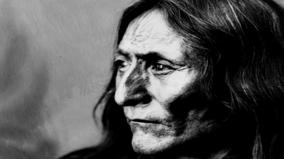John Kim Bell : né pour inspirer
Dans ce portrait original de John Kim Bell, ce dernier revient sur ses années de formation, qui l’ont mené à Broadway et influencé dans sa décision de devenir le premier Autochtone d’Amérique du Nord à diriger un orchestre classique. Après avoir passé sa vie à donner une voix aux peuples autochtones par le biais des arts, il revient sur son travail de pionnier, qui inclut la mise sur pied de la Fondation nationale des réalisations autochtones, connue aujourd’hui sous le nom d’Indspire.

-
 Prix du Gouverneur Général pour les arts du spectacle2023 16 editions
Prix du Gouverneur Général pour les arts du spectacle2023 16 editions
Details
Dans ce portrait original de John Kim Bell, ce dernier revient sur ses années de formation, qui l’ont mené à Broadway et influencé dans sa décision de devenir le premier Autochtone d’Amérique du Nord à diriger un orchestre classique. Après avoir passé sa vie à donner une voix aux peuples autochtones par le biais des arts, il revient sur son travail de pionnier, qui inclut la mise sur pied de la Fondation nationale des réalisations autochtones, connue aujourd’hui sous le nom d’Indspire.
-
recipientJohn Kim Bell
-
scriptRoxann Whitebean
-
directorRoxann Whitebean
-
interviewRoxann Whitebean
-
participantLena RecolletStephanie PangowishKelsey MelansonNightstar
-
dancerKean Buffalo
-
musicianShane Kelsey
-
director of photographyJon Elliot
-
sound recordistJacob Rogers
-
first assistant cameraJordan Wanakamik
-
art design artistPaola Ridolfi
-
costumesAnge Loft
-
makeup artistNightstar
-
hairdressingNightstar
-
production assistantJordan WanakamikVictoria Anderson Gardner
-
data wranglingVictoria Anderson Gardner
-
editingRebecca Lessard
-
sound editingTravis Mercredi
-
sound designTravis Mercredi
-
music compositionGeorge Guerrette
-
sound mixerGeoffrey Mitchell
-
online editingYannick Carrier
-
titlesCynthia Ouellet
-
transcriptsLeanne Oakes
-
translationClaude Dionne
-
subtitlingClaude Dionne
-
NoneSylvie Azoulay
-
administratorLeslie Anne Poyntz
-
production supervisionRoz Power
-
technical coordinatorChristopher MacIntoshDaniel LordJulien Archambault
-
senior production coordinatorCheryl Murgatroyd
-
production coordinatorYanis Ait Mohamed
-
producerAmanda Roy
-
executive producerCecil Rohan Fernando
















